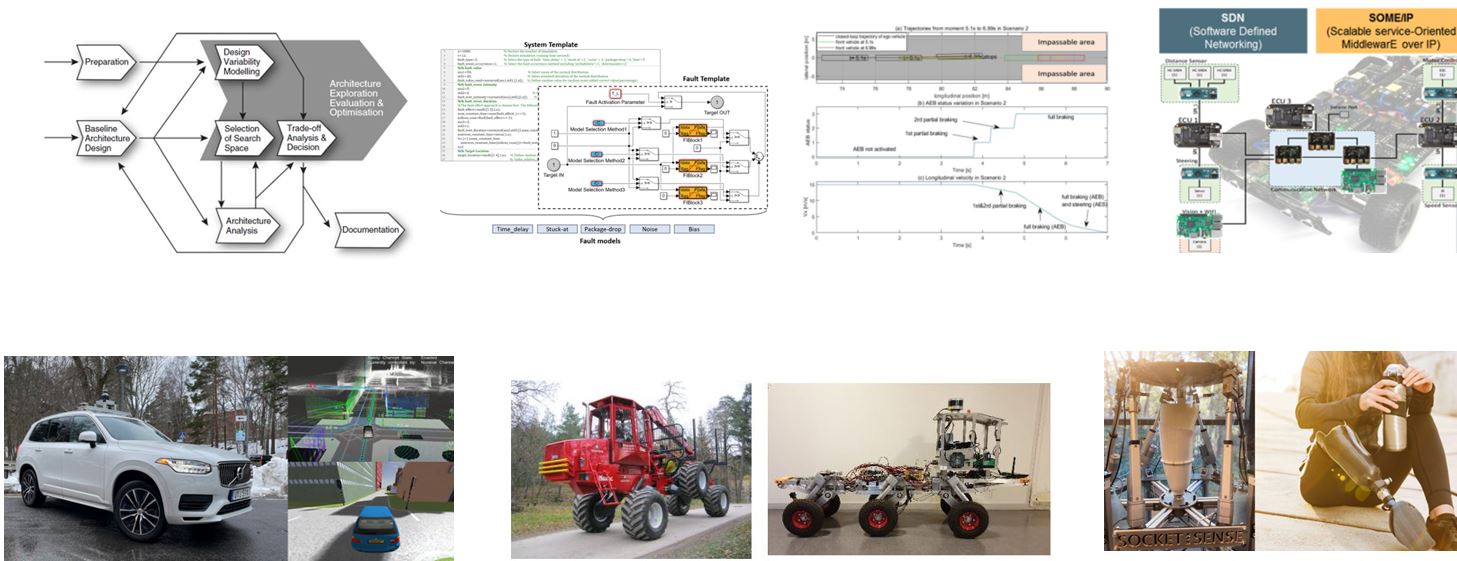Autonomous Systems
Autonomous systems research aims to create independent systems - including self-driving cars, drones, and robots - with applications in manufacturing and transportation. Key challenges include perception of the environment, decision-making and safe human interaction, as well as adapting to dynamic environments with incomplete or uncertain information. Autonomous systems research can increase efficiency, safety and automation, but also brings ethical and regulatory challenges.
An overview
Autonomous systems research is a rapidly growing field that encompasses a wide range of technologies, from self-driving cars to drones to intelligent robots. The goal of this research is to create systems that can operate independently, without the need for human intervention. This can have a wide range of applications, from improving efficiency in manufacturing to making transportation safer.
One of the key challenges is creating systems that can perceive and understand their environment. This requires the development of advanced sensors and algorithms that can process large amounts of data in real time. Another challenge is creating systems that can make decisions and take action based on that data. This requires the development of advanced control systems and machine learning algorithms.
One important aspect is creating systems that can safely and effectively interact with humans. This includes developing systems that can understand and respond to human speech, as well as systems that can safely navigate in environments that are crowded with people.
Another aspect is the development of systems that can operate in unpredictable or dynamic environments. This requires the development of advanced control algorithms that can adapt to changing conditions and make decisions based on incomplete or uncertain information.
Overall, the rapidly growing field of autonomous systems research has the potential to revolutionize many industries. It brings the promise of increased efficiency, safety and automation in various fields. It also brings a number of ethical and regulatory challenges, which need to be addressed in parallel with the technical developments.

About the research on Autonomous Systems
Our research on autonomous systems emphasizes the development of novel methodologies and technologies for the realization of intelligent agents in various application domains, characterized by human-robot interactions and advanced product lifecycle management. It aims to support novel functionalities, high performance and trustworthiness for a wide range of intelligent products that would otherwise be impossible with conventional approaches.
The key research targets can be categorized into the following areas:
- Development of multi-sensor solutions that are more effective and robust for operation monitoring in hazardous environments, including the usage of new materials, 3D~4D printing technologies for facilitating the design and deployment.
- Development of intelligent system functions for situation assessment, operation planning and control for stochastic dynamic processes that are partially observable, partially unknown, under the constraints of safety, security and performance.
- Development of novel actuators that are reconfigurable, intrinsically safe for collaboration with people, while being energy efficient and cost effective in multiple environments.
- Development of embedded services and platforms for FDIR (Fault Detection, Isolation and Recovery), QoS (Quality of Service) management of computation and communication resources for trustworthy operations in hazardous and electrically noisy environments.
- Development of engineering methods and tools for system modeling, analysis, knowledge learning and representation for effective integration of heterogenous components and multidisciplinary engineering efforts.
Research roadmap
Our research leverages on an integration of physical testing, formal modeling and analysis, statistical learning by ML/AI, optimal control and decision making, embedded software and hardware for self-managed trustworthiness.
The research activities include:
- Development of domain-specific modeling language for system design, product-line management, feature engineering and knowledge-based construction.
- Development of condition monitoring and safety control functions for trustworthy operation through a combination of ML/AI methods and control-theoretical approaches.
- Development of methodological and technological frameworks for self-managed configurations, maintenance and evolutions of products with cooperative and intelligent features. This includes the adoption of related industrial standards, existing architectures, middleware and platform services.
- Development of virtual and physical prototyping environments for the analysis verification and validation, fault modeling and synthetic data generation, training and optimization of dependable AI solutions in more resource constrained, time- and safety critical environments.
